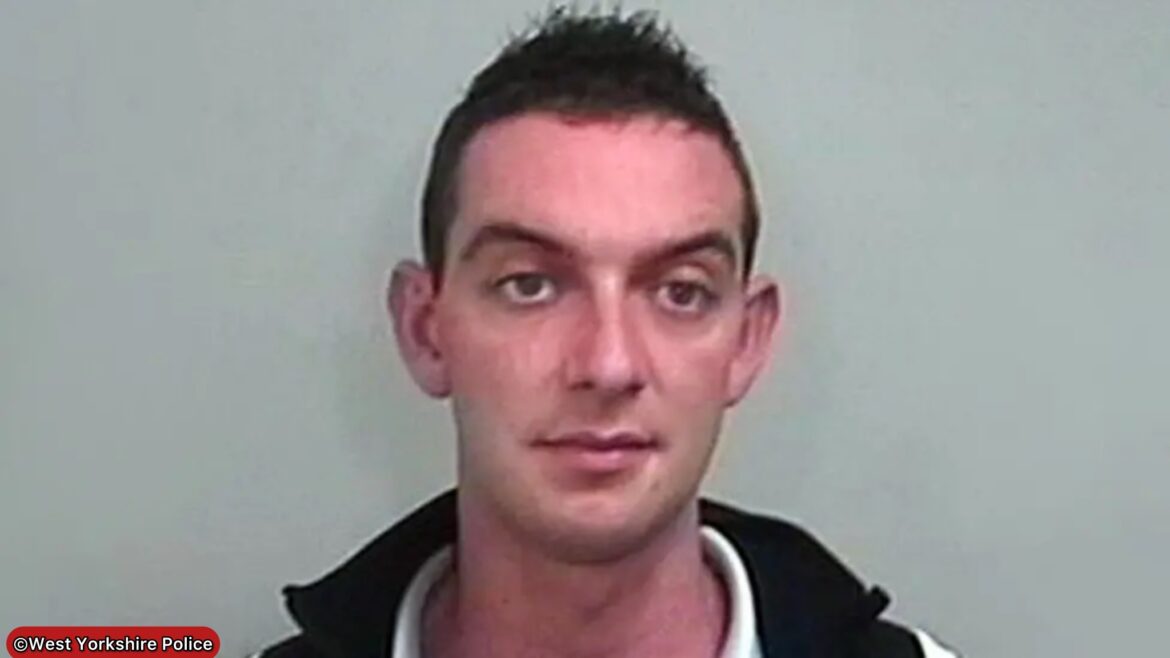Colin Campbell’s failed appeal after 17 years behind bars could prove devastating for Letby, whose case has been picked up by same miscarriage of justice watchdog
A nurse jailed for murdering four patients in a case with eerie parallels to Lucy Letby today lost his bid to have his conviction overturned – in a ruling that could prove catastrophic for Britain’s most prolific child killer.
Colin Campbell, previously known as Colin Norris, saw his appeal crushed by the Court of Appeal after claiming the evidence against him was “wholly circumstantial” – the exact same argument being made by Letby’s supporters.
The 48-year-old has spent 17 years behind bars for killing Doris Ludlam, 80, Bridget Bourke, 88, Irene Crookes, 79, and Ethel Hall, 86, by injecting them with insulin at Leeds hospitals in 2002.
In a devastating judgment that will send shockwaves through Letby’s camp, Lady Justice Macur, Mr Justice Picken and Sir Stephen Irwin declared: “We have no doubt about the safety of any of the five convictions. The appeals are dismissed.”
The chilling parallels to Letby
The similarities between the two cases are spine-tingling. Like Letby, Campbell was convicted on a mountain of expert evidence after prosecutors argued he was the “common denominator” in a cluster of unexplained patient collapses.
His trial heard that spontaneous hypoglycaemia was extremely rare – and it was “extraordinary” to have multiple cases in one place in such a short time. Sound familiar?
The jury were told Campbell was present when each patient fell ill or shortly before – making him the only common factor, just as Letby was described as the “common denominator” among the deaths of her newborn victims.
Both killers maintained their innocence, both claimed natural causes could explain the deaths, and both had their cases picked up by the Criminal Cases Review Commission (CCRC) after years of campaigning.

‘Evolution of medical knowledge’
Campbell’s barrister Michael Mansfield KC – one of Britain’s most celebrated lawyers – had argued there was an “evolution of understanding” about hypoglycaemia that made the convictions unsafe.
He pointed to four similar cases that occurred at Leeds hospitals AFTER Campbell stopped working – deaths recorded between January 2003 and August 2005 that “no-one is suggesting were anything other than natural causes.
The defence claimed new expert evidence found the hypoglycaemia in Campbell’s victims “may be accounted for by natural causes” – eerily similar to claims by Letby’s supporters.
But the judges weren’t buying it. In fact, they said these extra cases actually STRENGTHENED the prosecution’s case, serving to “underline rather than undermine” the distinctive pattern of deliberate insulin administration.
A blow to the ‘blue riband committee’
The timing couldn’t be worse for Letby, whose case is currently being reviewed by the same CCRC that referred Campbell’s appeal.
Just months ago, a “blue riband committee” of 14 neonatologists claimed they found “no murders” after reviewing Letby’s case, with retired Canadian expert Dr Shoo Lee declaring there was “no medical evidence to support malfeasance.
The panel claimed the babies died from “natural causes or errors in medical care” – not deliberate harm. Their findings were trumpeted by Letby’s lawyer Mark McDonald as “overwhelming evidence” that her conviction was unsafe.
But today’s ruling shows that courts aren’t easily swayed by panels of experts challenging jury verdicts – especially when those juries heard extensive expert testimony during lengthy trials.
The insulin connection
Both cases relied heavily on insulin evidence. Campbell’s victims all developed severe hypoglycaemia, which prosecutors said was caused by him injecting them with the drug.
Letby was convicted of murdering two babies by insulin poisoning, with the prosecution arguing she had deliberately administered the hormone to cause their deaths.
In both trials, defence teams challenged the reliability of insulin testing and questioned whether natural causes could explain the readings. In both cases, juries rejected these arguments after hearing from multiple experts.
Twenty experts gave evidence
The scale of expert testimony in Campbell’s original trial was staggering – 20 experts gave evidence during the five-month proceedings at Newcastle Crown Court in 2008.
Similarly, Letby’s trial featured a parade of medical experts, with lead prosecution witness Dr Dewi Evans producing numerous reports for police and giving extensive testimony about air embolism, insulin poisoning and other alleged methods of murder.
Despite defence teams in both cases later claiming this expert evidence was flawed or outdated, appeal courts have shown extreme reluctance to overturn jury verdicts based on new expert opinions.
The CCRC’s credibility questioned
The Criminal Cases Review Commission’s decision to refer Campbell’s case back to the Court of Appeal – after which it was comprehensively rejected – raises serious questions about the body’s judgment.
It took the CCRC ten years to refer Campbell’s case after he first applied in 2011. By the time it reached the Court of Appeal, he’d been in prison for 21 years, only to have his hopes crushed.
Now the same organisation is reviewing Letby’s case, with her lawyers submitting their application in February this year. But will the CCRC’s track record give her false hope?
‘Wholly circumstantial’ doesn’t mean unsafe
Campbell’s team had argued the case against him was “wholly circumstantial” and “heavily reliant on expert opinion evidence” – language that could have been lifted directly from Letby’s appeal arguments.
But today’s judgment shows that circumstantial cases built on expert evidence can still be rock solid. The judges found “no doubt about the safety” of the convictions despite the lack of direct evidence.
This will be deeply troubling for Letby’s supporters, who have made similar arguments about the circumstantial nature of her case and the reliance on expert testimony about air embolism and insulin poisoning.
The Supreme Court hope
Campbell’s lawyers immediately announced they are “actively pursuing grounds for appeal to the Supreme Court” – showing the fight isn’t over even after 17 years.
But Supreme Court appeals in criminal cases are exceptionally rare and require a point of law of general public importance. The chances of success are vanishingly small.
For Letby, serving 15 whole-life orders, the prospect of spending decades fighting through the appeal system only to be repeatedly rejected must be terrifying.
Lady Justice Thirlwall’s inquiry
The Campbell ruling comes as Lady Justice Thirlwall prepares to publish her findings from the public inquiry into how Letby was able to commit her crimes.
Expected this autumn, the inquiry has examined how the nurse was able to murder seven babies and attempt to kill seven others at the Countess of Chester Hospital between 2015 and 2016.
Unlike Campbell, who killed elderly patients, Letby targeted the most vulnerable victims imaginable – premature babies fighting for their lives in a neonatal unit.
A warning to miscarriage of justice campaigners
Today’s judgment sends a clear message to those claiming miscarriages of justice based on evolving medical knowledge: the courts won’t easily overturn jury verdicts.
Despite high-profile supporters, media campaigns and panels of experts, both Campbell and Letby remain convicted killers in the eyes of the law.
As Campbell begins his 18th year behind bars with his convictions intact, Letby faces the grim reality that her own appeal journey may follow a similarly fruitless path.
The Court of Appeal’s emphatic dismissal of Campbell’s case – finding “no doubt” about his guilt – shows just how high the bar is set for overturning murder convictions.
For the families of Campbell’s victims, today brings closure after years of uncertainty. For the families of Letby’s victims, it offers reassurance that convictions based on expert evidence can withstand decades of challenges.
And for Letby herself, languishing in HMP Bronzefield as one of only four women ever handed a whole-life tariff, today’s ruling must feel like another door slamming shut on her hopes of freedom.



